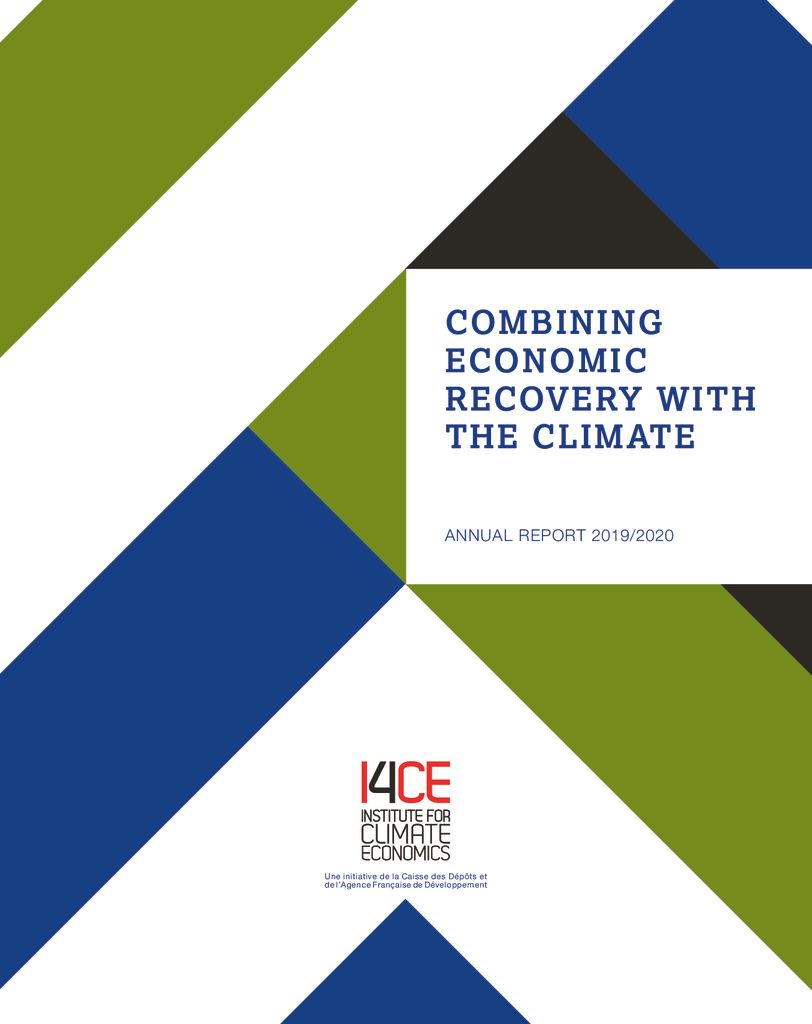Annual report 2019/2020: combining economic recovery with the climate
Foreword from Pierre DUCRET, Chair
“Being able to mobilize expertise quickly, that is the added value of think tanks”
THE ECONOMIC CRISIS ASSOCIATED WITH COVID-19 HAS SHAKEN UP THE PUBLIC POLICY AGENDA, PARTICULARLY IN TERMS OF FUNDING THE FIGHT AGAINST CLIMATE CHANGE. The huge injection of public funding has created new opportunities, and equally big risks. With the full brunt of the crisis being felt by sectors that are key to the low-carbon transition, the need to protect jobs may mean that sectors that should be changing are maintained as they are.
THE CHALLENGE FOR I4CE HAS BEEN TO REACT QUICKLY AND CONTRIBUTE TO THE STRATEGIC DEBATE ON ECONOMIC RECOVERY, mobilising the expertise it has carefully developed over time on the economic and financial issues involved in the low-carbon transition. Developing expertise over long periods and being able to mobilise it quickly when the need arises is the challenge of all public policy research organisations, of all think tanks. Taking on this challenge is their added value, their raison d’être.
THE EXPERTS AT I4CE WERE ABLE TO RISE TO THIS CHALLENGE RIGHT FROM THE EARLY MONTHS OF THE CRISIS, and will continue to do so. They have formulated numerous proposals and analyses, which you can read about in this activity report. They were the first to make the case for a green recovery and set out how it can be done. Since early April, I4CE’s climate investment plan for the economic recovery has been presented to about one hundred members of parliament, the same number of businesses and about fifty members of civil society.
THIS RESPONSIVENESS WOULD NOT HAVE BEEN POSSIBLE WERE IT NOT FOR I4CE’S LONG STANDING AND SUPPORTIVE PARTNERS. It is thanks to them, and in particular CDC, AFD, ADEME, CDG and the Banque de France, that we had the human and financial means to develop the expertise that has proved so valuable in the current situation. We thank them all.
Click on this button to see the image
